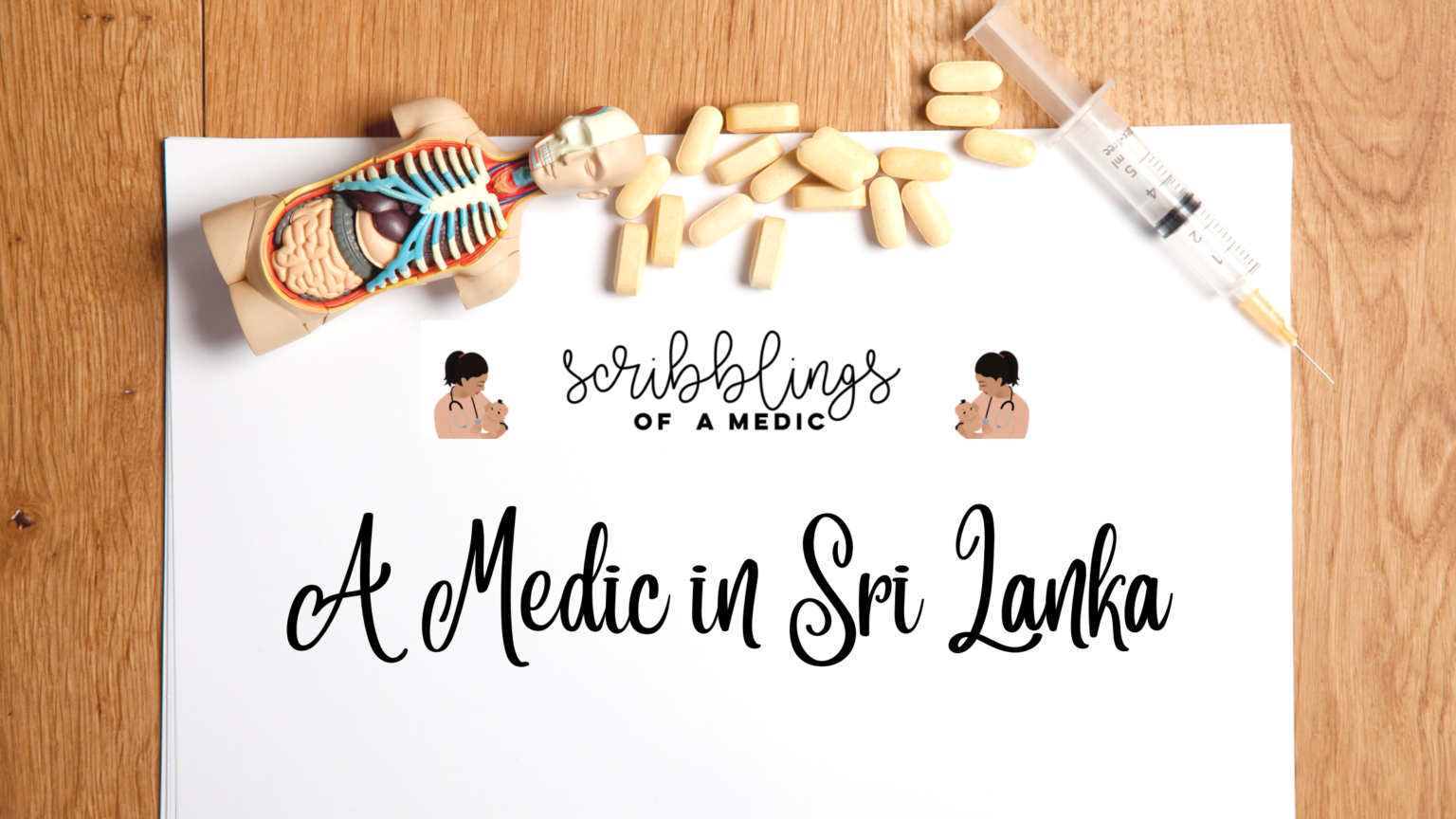Dr Madushika Rajapakse is a medical graduate of Manipal College of Medical Sciences in Nepal and did her internship at Manipal Teaching Hospital, Pokhara, Nepal. She recently migrated to the United Kingdom after completing part 1 & 2 of the PLAB (Professional and Linguistic Assessments Board test) and wrote this article to educate other doctors like her, who are interested in working for the National Health Service (NHS) in the United Kingdom.
Why the United Kingdom (UK) ?
I chose UK mainly because I wanted to do my specialization training here. I intend to one day work as a surgeon (IF I get into a surgical program) and I thought the UK would be the best country for me to do so. I’m not saying that Australia and USA are bad options, but I tabled all three and identified the UK as the best option for me (shown below).
| USMLE (United States Medical Licensing Examination) | AMC (Australian Medical Council Examination) | PLAB |
| Knowledge content needed is high | Knowledge content needed is average | Knowledge content needed is average |
| More prep time required | More prep time required | Less prep time |
| Difficult to study with a job | Depends on your job hours | Can study with a job |
| Exams are difficult | Exams are difficult | Exams are comparatively easier |
| 3 exams | 2 exams | 2 exams |
| Single attempt | Multiple attempts for part one, single attempt for part two | Multiple attempts |
| High pass score | High pass score | Low pass score |
| Fewer jobs available | Difficult to get a job | Lots of jobs |
| Expensive | Expensive | Relatively cheaper |
If you’re torn between Australia and the UK, there is a pathway where you take PLAB, then work in the UK for 2 years and thereafter can apply for jobs in Australia. For information on the AMC examinations, click on the link here.
My Post-medical school game plan
I did the first (written) PLAB examination in the middle of my internship. It was definitely tough, but I managed balancing studying and working somehow. I then decided to wait until internship was over and my graduation ceremony was held in order to continue my PLAB journey. Unfortunately, I got derailed by a year because of the pandemic and during 2020, I couldn’t fly to the UK to take the second (clinical) PLAB examination. It was a lot of time to idle at home but I made myself busy by volunteering at Sahanaya, a national council for mental health and also did regular clinics with Dr Lakshman Weerasena at his General Practice. Once the borders re-opened, I flew to the UK to take the second PLAB examination.
To touch on the ERPM examination (Examination for Registration to Practise Medicine), I never intended to stay in Sri Lanka so it was never an option for me; the UK was always the plan.
So what is PLAB?
PLAB stands for Professional linguistics and Assessment board. It is straightforward with two parts, Part 1 and 2.
PLAB 1
PLAB part one or more commonly known as PLAB 1, is a written examination. It entails 180 SBA (single best answer) questions. It mainly asks clinical based questions, but it’s possible that they might slip in a few basic sciences questions. Each question carries 1 mark and there is no negative marking. The pass mark varies with each exam, because the exam is standardized and so it depends on how the candidates do on the exam. The pass mark at the PLAB examination I did was 122.
The whole exam runs for 3 hours. So 180 questions in 180 minutes basically means you have 1 minute per question. The catch is that the content of the question is almost always a case with a history, examination findings, investigations or management and the question asks about investigations or management mainly. Each question is long – about half a page or ¾ of a page – so the problem with this exam is timing. You have to practice your timing with practice questions so you can read faster and highlight the important phrases/words. As I read each question I underlined the important points so when I looked at the question at the end, I knew what to immediately look at without having to read the whole question again.
Another tip – Definitely do not drink much coffee or water before or during the exam as you would lose time in case you needed to use the bathroom. Fun fact: a friend who took PLAB 1 last year also took a desmopressin tablet before the exam so he wouldn’t need to use the bathroom during the exam!
PLAB 2
PLAB 2 is a clinical based examination. Due to Covid-19, it now consists of 18 OSCE stations out of which 2 are rest stations. Pre-Covid it consisted of 20 OSCE stations, of which 2 are rest stations.
An OSCE (Objective Structured Clinical Exam) is an 8-minute station where you are given a card with a task that you have to carry out. For example, they may give you brief details of a patient who has come presenting with a certain symptom and you have to take history or do an examination and present the management to the patient or sometimes to the examiner. You will enter the room when the timer starts and begin the case. At 6 minutes you’ll hear a warning bell signalling that you have 2 more minutes, and then lastly at 8 minutes the final bell will ring. After this you have to move to the next OSCE station and it goes on like this 18 times (including rest stations). Between stations you get 1 minute and 30 seconds to read the task card.
The target of this exam is to assess your knowledge at the level of a foundation year 2 level doctor in England. They will check if you are a safe doctor and whether you can apply knowledge into caring for each patient.
To pass PLAB 2, you need to pass all three modalities listed below:
- Each station is marked out of 12, you need to get above the pass mark for each station (the pass mark will vary according to the days’ pass mark of that station). For example, if station one has a pass mark of 5.72 you need to get 6 to pass the station.
- Out of the 16 stations, in total you need to pass 10 stations.
- There is a total pass mark, which adds all the marks you’ve gotten at each station and you need to score above that. For example, if the days’ total is 97 you need to get 98 to pass.
So to summarize you need to pass all three above to pass the exam.
Requirements to do PLAB
To do PLAB, you need to first do an English language proficiency examination – the IELTS or OET.
For IELTS (International English Language Testing System), you must take the academic version of the test and get a score of atleast 7 in each of the 4 modules and an overall band of 7.5. The 4 modules include listening, reading, writing and speaking.
For OET (Occupational English Test), you need to take the medicine version of the test and get a grade B in each testing area. It needs to be verified by the General Medical Council (GMC) via the online OET portal, once you get the required grade.
After you’ve gotten the required qualification, you can create your online GMC account. You can create the account by logging on to www.gmc-uk.org and after it is created you can enter your IELTS score or send our OET for verification via the portal and then book to do the PLAB 1 exam.
PLAB1 is conducted in Sri Lanka and is organized by the British Council. PLAB 2 on the other hand is currently only held in Manchester, United Kingdom. When I did the exam, PLAB 1 cost 240 GBP and PLAB 2 cost 879 GBP.
Preparation is key
PLAB 1 preparation:
I used the Oxford handbook of Clinical medicine, Oxford handbook of Surgery, NICE guidelines, the NHS website and Harrisons textbook of medicine. You can also use various question banks available on the internet; the most famous one is PLABABLE.
There are several PLAB community groups on Facebook and I suggest joining those as well so you have a study group to do questions and discuss with.
PLAB 2 preparation:
PLAB 2 preparation is tricky! You need to find a practice partner to help you practice the clinical skills. Engage in practicing cases daily because your communication skills matter a lot. You can find cases to practice on these Facebook groups. Do remember the examiners will be checking your knowledge so there is no predicting what questions they will give you; you have to be a safe doctor in any situation.
The basics would be learning about the healthcare system in the UK and how it functions from where you are placed in each station and what to do depending on the diagnosis. For example: how you treat an acute patient in a GP setting and what you can do as a FY2 level doctor. I found the NHS website extremely helpful, it has got a patient-centred bank of information to help you convey information to patients with the least amount of medical jargon.
The Post- PLAB pathway
Post PLAB pathways will depend on your qualifications.
- If you do not have an accepted internship by the GMC, you will have to apply for a provisional license to practice medicine in the UK and then apply for an internship in the United Kingdom – Foundation year one and two.
- If you have an accepted internship – you can apply for full registration with the GMC and then go on to look for jobs.
After getting a job you can slowly develop your portfolio and get into a specialty training program.
**UPDATE** – Dr. Madushika and I have done an instagram live covering the essentials of the PLAB exam – recording is on instagram @scribblingsofamedic

Madushika is a good friend of mine, who has always had her eyes set on practicing in the United Kingdom. Like her I know many Sri Lankan doctors are looking to migrate to the UK for better training and job opportunities. I have been bombarded by medical students and doctors, asking how to train in the UK, but as I graduated from a UK university. However, with a UK degree, I cannot sit for the PLAB examinations and have never looked into it. I am so glad to have Madushika write up her experience because she has a wealth of knowledge about the PLAB examinations and I know that this will help so many other doctors. She is currently in the process of acquiring full registration with the GMC before applying for jobs. In her spare time, Madushika is an avid cook, plays chess and bookworm – a nice break from medicine.
I hope this helps you pursue your goal of working as a doctor in the UK. Do email scribblingsofamedic@gmail.com if you have any further questions or suggestions for fellow medics with regards to the PLAB examination.





